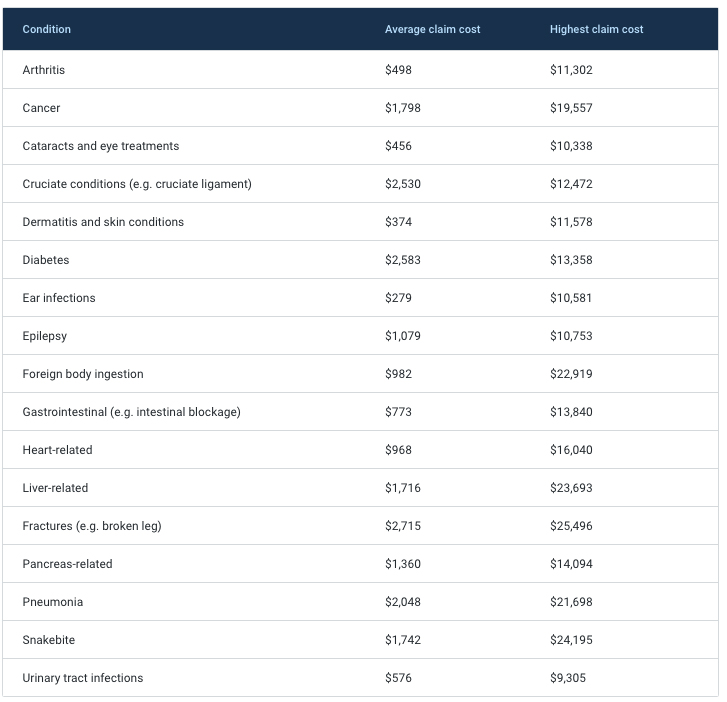“Do I really need pet insurance?” This is a common question and something that most pet owners ask at one time or another. Whether an owner goes on to purchase an insurance policy really depends on their individual circumstances.
So, if this is a question you’re currently pondering, read on to discover the pros and cons of pet insurance. Also, find out some of the positive actions you can take to find an answer to your question.
The pros and cons of pet insurance
Start by weighing up the benefits and negatives when trying to decide if you need pet insurance. Here is an overview of the pros and cons.
The pros
A plan to give your pets the care they deserve
We all know someone with a horror story about his or her pet. If your pet should sustain an injury or have an accident and require veterinary care, you have a plan in place to deal with this. In short, having pet insurance can help take the stress out of an emotional and upsetting situation.
Protection against financial setbacks
Vet medical bills don’t come cheap. Even a routine operation can be costly. While the thought of monthly insurance premiums might put you off, it’s important to consider what would happen if you were presented with a hefty vet bill to save your pet or make them well again. Certainly, pet insurance helps to fill the gap to avoid huge out-of-pocket expenses if your furry friend should become injured or ill.
Ensures your pet gets the best care
Imagine if your dog gets sick and you have to face the decision of whether to put your dog down or cover the medical costs. No loving pet owner would ever wish to be in this situation. However, these situations happen. If a pet owner doesn’t have the savings to cover the costs of a veterinary bill, euthanizing their pet may be their only choice, which is simply devastating for all involved.
Preventative health and general wellbeing
Petsecure offers an Optional Wellness Care, which assists with a range of routine and wellbeing expenses. Owners with this type of cover tend to take their pet for regular vet checks and keep up to date with vaccinations because they can claim for this.
As such, having this type of pet insurance helps to keep our four-legged friends well, as potential health concerns are more likely to be picked up early on. Furthermore, this type of preventative care supports pets’ long-term health.
The cons of pet insurance
Not all health concerns are covered
Unfortunately, not all health concerns are covered when you take out insurance for your pet. For example, some policies only cover pets up to a certain age. It can be difficult to find insurance for dogs and cats aged over nine years. Similarly, pre-existing health conditions are not covered. However, you could argue that if you take out insurance early on these things are not an issue! After all, if you take out insurance for a puppy there’s less chance they’re going to have a pre-existing condition that won’t be covered.
Ongoing expense
For some people, insurance is just another monthly premium they could do without.
You can only claim a percentage of the costs
No policies cover the full (100%) cost of veterinary expenses. This means you are still expected to pay a percentage of the costs. This amount can vary, depending on the policy you take out. Pet Secure covers 75-85%, depending on the option you choose.
Making an informed decision
When it comes to deciding whether or not you need pet insurance it pays to do your research. Here are a few things to consider to make the best choice.
Average veterinary costs—Knowing the potential costs you face should your pet become ill or injured might help you decide if you need pet insurance. Below is a look at the cost of some common pet surgeries and treatments.
Likely health risks—Take the time to talk to your vet about the health risks your particular breed or cat or dog faces. Also, find out about local risks, such as contamination and other dangers.
Ask your vet about the most common procedures they carry out and whether or not they’re elective. Ask about the most common injuries or diseases pets in your area contract. For example are snakes and ticks widespread in your locality?
Related posts:
Image source: Unsplash.com









Leave A Comment